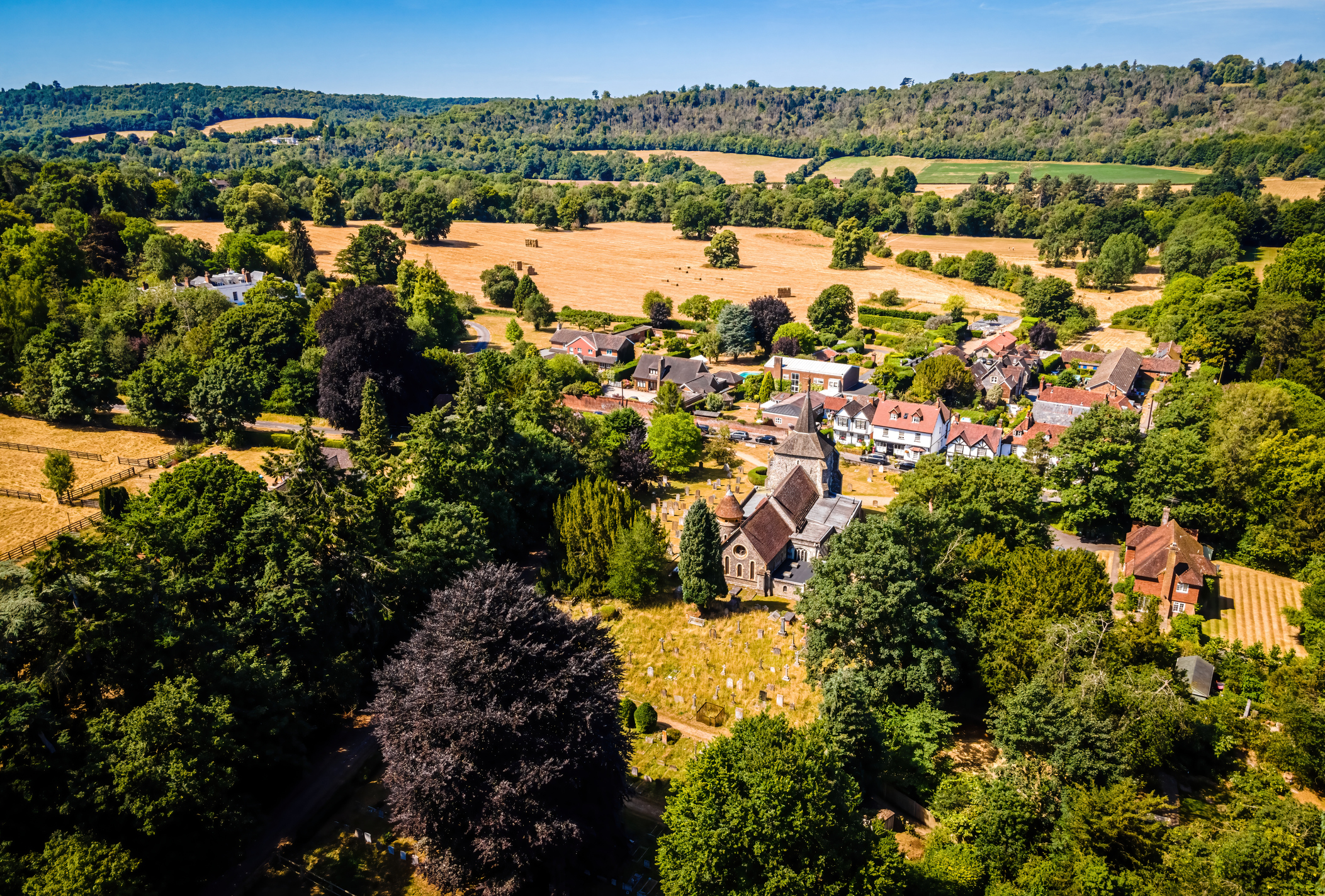The abolition of Stamp Duty: Will it happen? Could it happen? What would replace it? And what would be the impact?
The Conservative Party promises to abolish Stamp Duty on primary residences if it wins the next election. We canvassed property experts from across the housing industry to see what the impact would be.

Exquisite houses, the beauty of Nature, and how to get the most from your life, straight to your inbox.
You are now subscribed
Your newsletter sign-up was successful
It’s extraordinary how much impact the property market has on the news agenda in Britain. Kemi Badenoch, the beleaguered leader of the Conservative Party, has found it nigh-on impossible to get a positive headline for weeks, but she managed to do so on Wednesday by announcing that the Tories plan to abolish Stamp Duty on house sales in Britain.
There are two big caveats: firstly, only primary residences would be exempt from the tax. And secondly, given Ms Badenoch's position in the polls and the fact that a General Election is almost four years away, the Conservatives are a long way off being able to do anything more than shout from the sidelines. She could just as easily promise free candy floss and the abolition of parking meters. ‘This is nothing but political hot air designed to win votes,’ as Marc von Grundherr, director of Benham and Reeves, puts it.
And yet it’s an intriguing idea because Stamp Duty — and Council Tax, for that matter — are both woefully broken systems that only seem to stay in place because the job of overhauling, and establishing the new taxes needed to fill the holes they leave behind, have proven too daunting for several generations of political leaders in this country.
What would happen, though, if Stamp Duty were indeed abolished? No doubt the first reaction for many would have been to breathe a sigh of relief. A little while ago the Country Life team took a look the most searched-for terms in property, fully expecting the list to be full queries about the best places to live, the most family-friendly areas and so on. All those were there, but the number one question — by far — was ‘how much Stamp Duty will I have to pay?’
It’s a system that has become frustratingly Byzantine in recent years, with different layers, constant changes in the levels of how much is payable, several exceptions which change the rates, and more. It’s nothing that somebody with a spreadsheet and an hour to spare couldn’t work out — but nor is it something that you could work out without a spreadsheet and an hour to spare.
A tiny number of house buyers pay no Stamp Duty at all — house purchases below £125,000 are exempt; those buying homes at the higher end of the market pay 10% from £925,000 to £1.5 milllion, and 12% beyond that.
Most house buyers paying the national average of just under £300,000 for their home will pay around £5,000; someone buying a £2.5 million house in Surrey, say, will pay £213,750 — unless one of the buyers is non-UK resident, in which case it rises to £263,750. If it's a second home, even UK residents will find that their bill goes up to £338,750. Ouch.
Exquisite houses, the beauty of Nature, and how to get the most from your life, straight to your inbox.
Dan Neidle, founder of a think tank called Tax Policy Associates, has long suggested that Stamp Duty should be abolished, arguing that the uptick in the property market that’s been seen during the so-called Stamp Duty holidays of recent years would probably be long-lasting. ‘Stamp Duty stops people moving,’ he wrote on a recent thread on X. ‘There is evidence that it reduces labour mobility, results in inefficient use of land, and holds back economic growth. It also makes people miserable.’
'The really courageous answer is to scrap Council Tax, business rates and Stamp Duty'
Others agree. Verona Frankish, CEO of Yopa, also points to how past Stamp Duty holidays have helped stimulate the market, ‘with activity climbing sharply during the pandemic reprieve, and again this year before thresholds reverted to previous levels.’
Removing Stamp Duty is one thing. Replacing the hole in the public coffers that abolition leaves behind is another thing entirely.
‘The impact that abolishing Stamp Duty would have is largely dependent on what replaces it,’ says Lucian Cook, head of residential research for Savills.
‘Residential property transactions currently generate £10.4 billion for the Treasury. Of that sum £5.5 billion comes from people’s primary homes,’ he adds, explaining that £2.6 billion of the remaining £4.9 billion comes from the underlying rate of tax on investment second home purchases.’
‘If, and this is a big if, it is a simple tax giveaway, the likelihood is that the current Stamp Duty bill simply passes through into prices. On that basis, that would indicate an uplift in house prices of around 1.4% to 2.1% on average — or £5,100 to £7,500 — depending on exactly how it is implemented.’
In other words, a tax that ostensibly sounds like something that would help people selling their houses would fairly quickly become a windfall for those selling their houses — particularly in the wealthier parts of the country. Mr Neidle also subscribes to this view, explaining in a lengthy article that ‘abolition would inflate property prices’. There is in his eyes a solution: ‘The really courageous answer is to scrap council tax, business rates and stamp duty – that’s about £80 billion [of tax revenue] all together – and replace them all with a land value tax’. It’s something that is used elsewhere in the world, but has never taken hold in Britain.
Without such a radical shift the other issue regarding Stamp Duty abolition is that the effects, as Mr Cook says, would be ‘unevenly distributed across the country's housing stock with a much greater impact on high value homes, meaning London and the South East would benefit most.’
Damien Jefferies, founder of Jefferies London, goes further, particularly in regard to the country’s most expensive homes. ‘For prime London in particular, the impact could be transformative,’ he says, pointing out that Stamp Duty rates have been one of several issues dissuading international buyers in the capital. ‘Scrapping Stamp Duty would reverse much of that sentiment, positioning London once again as a highly attractive, liquid, and globally competitive market.’
Toby Keel is Country Life's Digital Director, and has been running the website and social media channels since 2016. A former sports journalist, he writes about property, cars, lifestyle, travel, nature.


